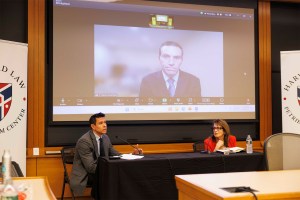Science & Tech
-

Harsh past might bare its teeth
Early adversity leads to higher aggression and fearfulness in adult canines, study says

-

What will AI mean for humanity?
Scholars from range of disciplines see red flags, possibilities ahead
-

‘Human exceptionalism is at the root of the ecological crisis’
Saving the planet requires getting over ourselves, argues author of ‘The Arrogant Ape’
-
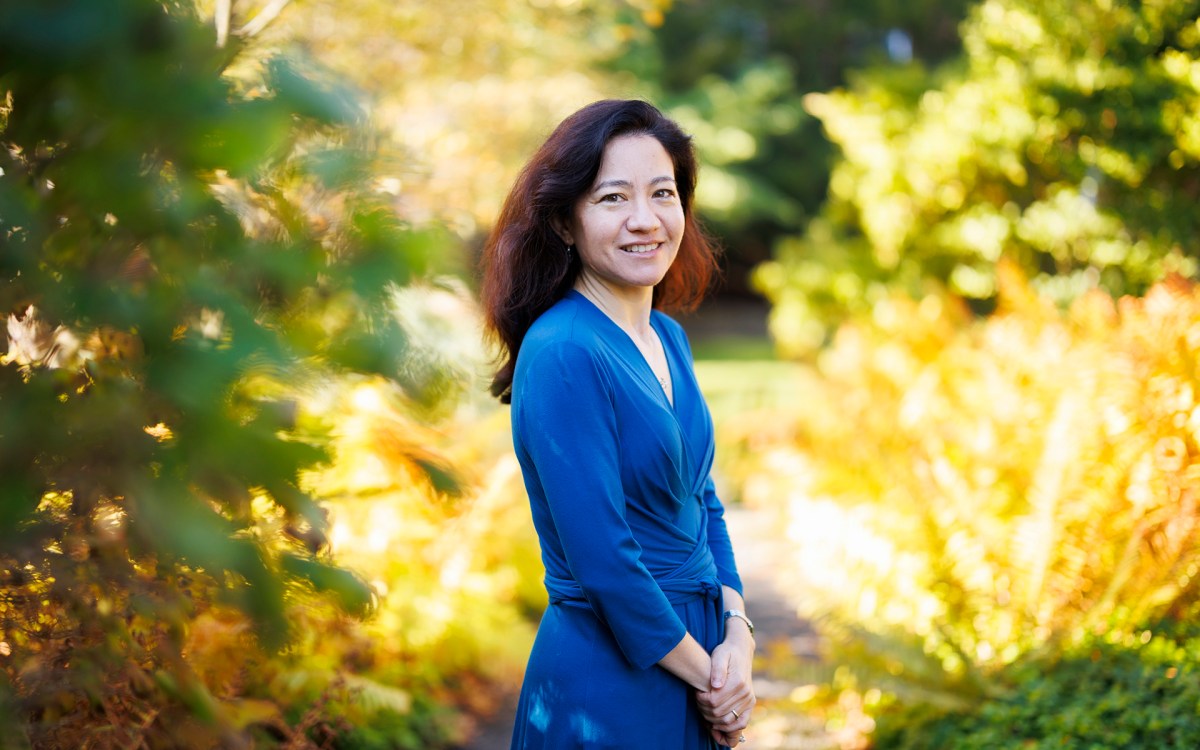
Lauren Williams awarded MacArthur ‘genius grant’
Math professor honored for theoretical breakthroughs with sometimes surprising applications across phenomena such as tsunamis, traffic
-
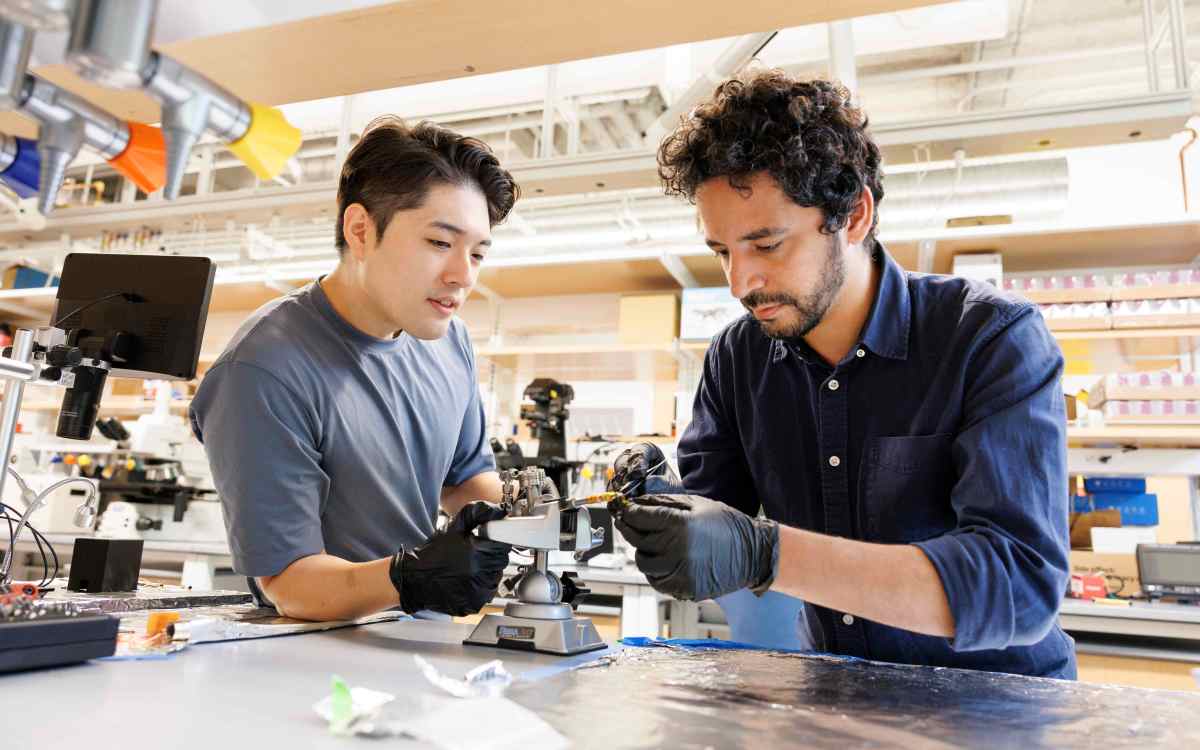
-
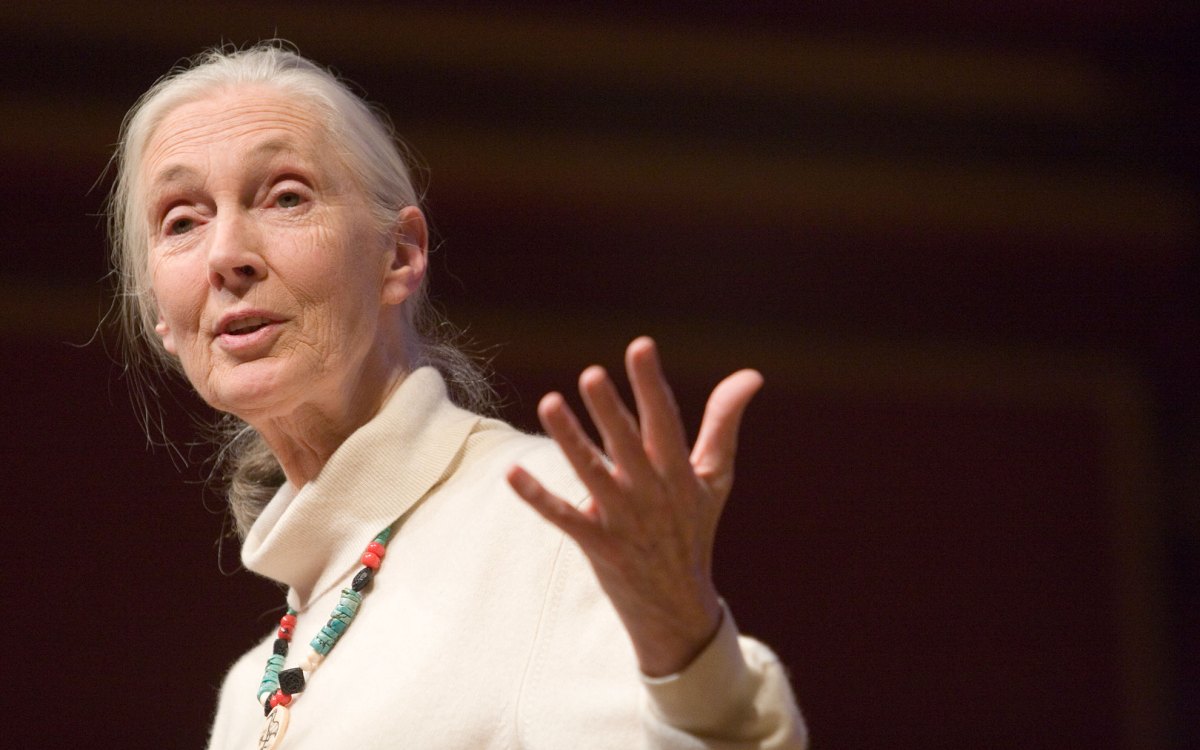
‘She had a sense of caring for everybody that she encountered.’
Richard Wrangham remembers his teacher and colleague Jane Goodall as a force of science, empathy, and hope
-
Stimulus funds provide welcome research boost
In remarks last month at the National Institutes of Health (NIH) in Bethesda, Md., President Barack Obama said not only do we need stimulus money to create thousands of jobs…
-
Wasteland and wilderness
Harvard science historian and physicist Peter Galison is using part of his Radcliffe year to explore the intersections of forbidden wilderness and nuclear wasteland.
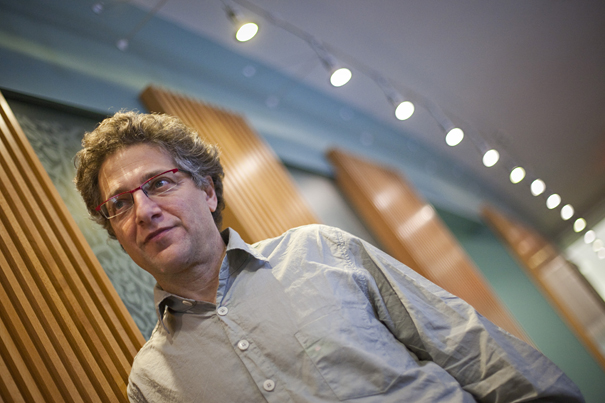
-
Invisible matters
A new study seeking to answer the question of why some galaxies are extremely dark compared with others may eventually help to explain the formation of all galaxies, according to…
-
Donald Ingber awarded the 2009 BMES Pritzker Distinguished Lectureship for outstanding achievements, originality and leadership
Donald Ingber, M.D., Ph.D., founding director of the Wyss Institute for Biologically Inspired Engineering at Harvard University, has been awarded the Biomedical Engineering Society’s prestigious Pritzker Distinguished Lectureship for 2009.…
-
Why leave it to nature?
Amid calls for transformative change in the world’s energy supply, Harvard chemist Ted Betley is taking a back-to-basics approach and examining the mother of all energy supplies — photosynthesis —…
-
Expert: Lift taboo on Earth engineering
University of Calgary Professor David Keith calls for investment in geoengineering research as part of the search for solutions to climate change.
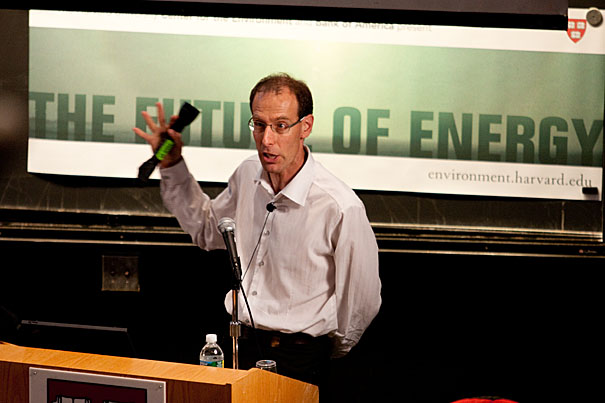
-
Huybers and Mahadevan named MacArthur Foundation Fellows
Two Harvard faculty members who study present and past ice sheets and the science behind familiar objects and everyday events have been named recipients of prestigious MacArthur Foundation “genius” grants.…
-
Harnessing fun for serious science
Researchers from chemistry, computer science, and astronomy are learning a trick or two from video games and investigating a new kind of computing based on graphics processing units.
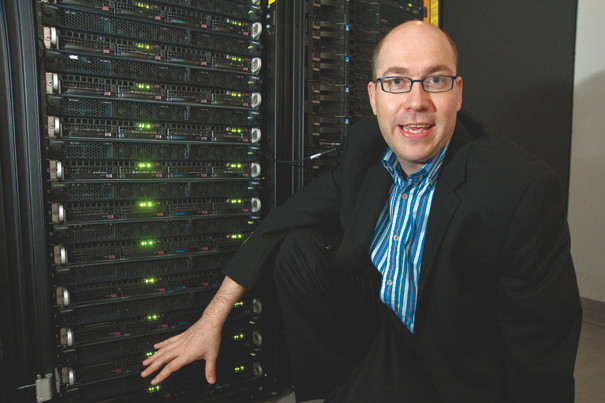
-
Genetic sex determination let ancient species adapt to ocean life
A new analysis of extinct sea creatures suggests that the transition from egg-laying to live-born young opened up evolutionary pathways that allowed these ancient species to adapt to and thrive…
-
China could meet its energy needs by wind alone
A team of environmental scientists from Harvard and Tsinghua University has demonstrated the enormous potential for wind-generated electricity in China.

-
Building human cooperation: Carrots work better
Rewards go further than punishment in building human cooperation and benefiting the common good, according to research published in the journal Science by researchers at Harvard University and the Stockholm School of Economics.
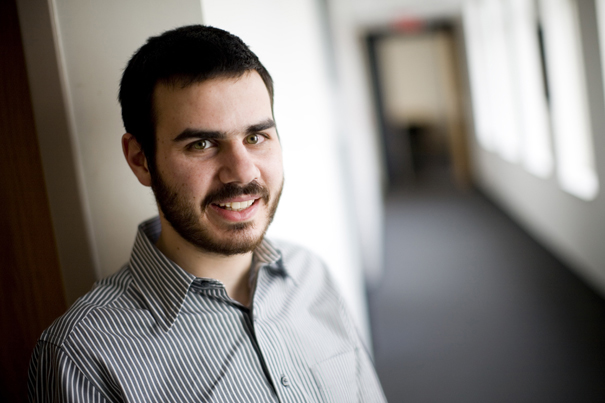
-
Humans and computers connect in Discovery Room
Chia Shen at the Scientists Discovery Room Lab is devising new ways for researchers to visually explore large data sets.
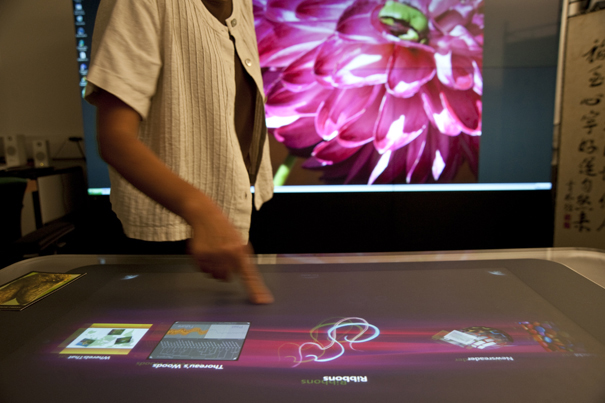
-
Two centers join fellowship programs
The Berkman Center and the Center for Research in Computation and Society (CRCS) have joined their fellowship programs for the 2009-10 academic year.
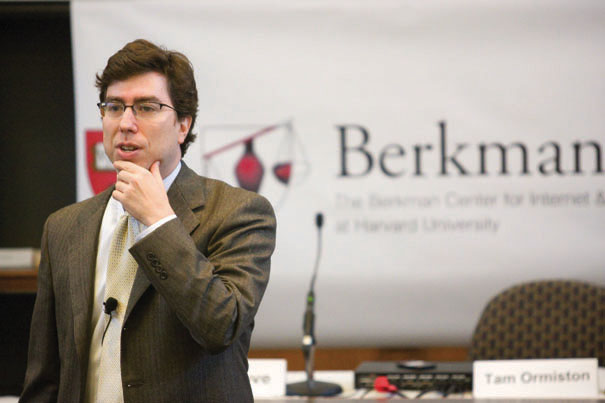
-
What really matters
Outcomes matter more than intention when choosing to punish or reward individuals who’ve caused accidents, according to new research from Harvard University.
-
Research team at Harvard to develop small-scale mobile robotic devices
A multidisciplinary team of computer scientists, engineers, and biologists at Harvard received a $10 million National Science Foundation (NSF) Expeditions in Computing grant to fund the development of small-scale mobile robotic…
-
After bloody revolution: Bringing science back to Liberian classrooms
Adam Cohen and Ben Rapoport needed materials to conduct a science experiment, but supplies were hard to come by. Cohen, assistant professor of chemistry and chemical biology and of physics…
-
Chu urges U.S. to anticipate its energy future
U.S. Energy Secretary Steven Chu described the U.S. failure to anticipate changes in the global energy supply during a talk at the John F. Kennedy School of Government Aug. 6.…
-
Scientists expect wildfires to increase as climate warms in the coming decades
As the climate warms in the coming decades, atmospheric scientists at Harvard’s School of Engineering and Applied Sciences (SEAS) and their colleagues expect that the frequency of wildfires will increase…
-
Parents concerned about financial impact of possible school flu closings
Substantial numbers of parents who have children in school or day care report that two-week closings in the fall would present serious financial problems for them, according to the results…
-
Newly discovered pheromone helps female flies tell suitors to ‘buzz off’
There she is again: the cute girl at the mall. Big eyes. Long legs. She smiles at you. You’re about to make your move … but wait! What’s she wearing?…
-
New Library Park in Allston will be quiet, green, tree-filled learning space
Last week (July 8), Harvard University planners presented preliminary designs to residents of Allston for the new 1.74-acre public park to be constructed behind the Honan-Allston Branch of the Boston Public Library on North Harvard Street.
-
Childhood adversity may affect processing in the brain’s reward pathways
New research shows that childhood adversity is associated with diminished neural activity in certain regions of the brain. Harvard researchers used functional magnetic resonance imaging (fMRI) to monitor brain activity…
-
Neuroimaging suggests truthfulness requires no act of will for honest people
A new study of the cognitive processes involved with honesty suggests that truthfulness depends more on absence of temptation than active resistance to temptation. Using neuroimaging, psychologists looked at the…
-
Four from Harvard win Presidential Early Career Awards in Science and Engineering
Four Harvard researchers have been named among the winners nationwide of this year’s Presidential Early Career Awards for Scientists and Engineers (PECASE). They are Roland G. Fryer Jr., Patrick J.…
-
Building a stellar time machine
Harvard researchers are building a celestial time machine that lets astronomers look back at hundreds of thousands of objects in the Earth’s skies over the past century.

-
Social pressure keeps African AIDS patients in treatment
One of the surprises of the global AIDS epidemic has been the high level of adherence to antiretroviral drug treatment in sub-Saharan Africa.

-
Massachusetts Lt. Governor tours Harvard research facilities
Massachusetts Lt. Governor Timothy Murray on Wednesday toured Harvard labs in both Cambridge and Boston. “The Patrick Administration has been very supportive of the university research sector in Massachusetts and…
-
Study: Women more likely than men to reject unattractive babies
Women are more likely than men to reject unattractive-looking babies, according to a study by researchers at Harvard-affiliated McLean Hospital, possibly reflecting an evolutionary-derived need for diverting limited resources towards…
-
Visitors will gravitate to ‘Black Holes’ exhibit
On Sunday, June 21, a new exhibit developed by educators and scientists at the Harvard-Smithsonian Center for Astrophysics (CfA) will open at the Boston Museum of Science. Called “Black Holes:…
-
Peculiar, junior-sized supernova discovered by New York teen
In November 2008, Caroline Moore, a 14-year-old student from upstate New York, discovered a supernova in a nearby galaxy, making her the youngest person ever to do so.


